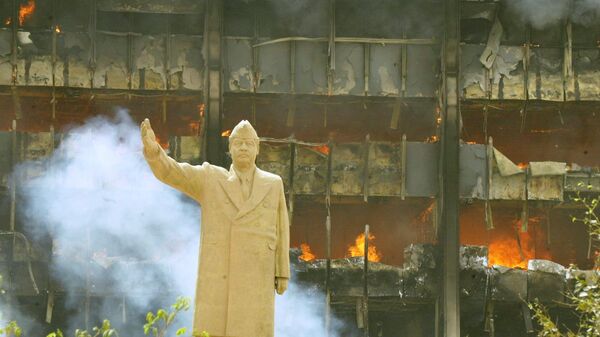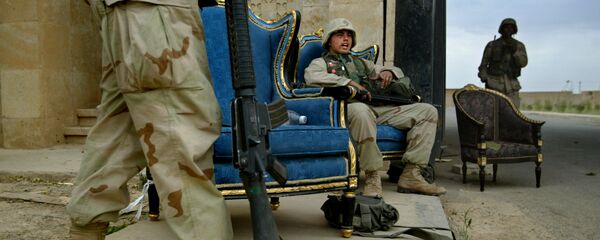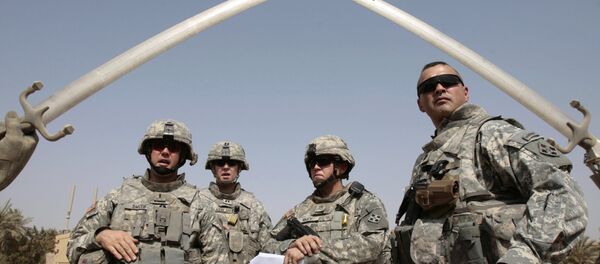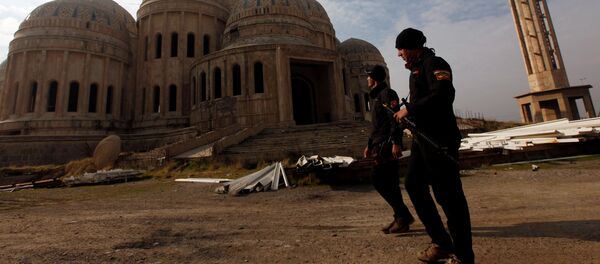Washington's invasion of Iraq in 2003 was not a mistake but a well-thought-out strategy of "controlled chaos," Enrico Piovesana, an Italian journalist and director of the Center for the Monitoring of Arms Expenditures (MILEX), told Sputnik Italy.
"[Sometimes] there is a need to destabilize some countries — for instance, Saddam Hussein's Iraq or [Muammar] Gaddafi's Libya," Piovesana explained. "At some moment these countries become 'inconvenient' regardless of their democracy standards. Then [the US] begins to destabilize them. The situation of chaos makes it easier to manipulate a puppet government."
According to Piovesana, the invasion of Iraq created more problems than solutions.
"We sent a military mission to a country which was certainly suffering from political problems, but they could not be compared with what we have left to generations of Iraqis who have already got used to living in the conditions of war," he said. "And it is still unclear how long this will last."
The Italian scholar recalled that before the winter of 2003, Rome had not planned to start a military operation. On February 15, 2003 a peace demonstration took place in Italy which was one of the largest in its history.
However, although the Italian government led by Silvio Berlusconi assured the population that the country would not join the conflict, on April 15, 2003 the Parliament approved Italy's invasion of Iraq under the guise of a humanitarian mission, Piovesana pointed out, referring to considerable pressure exerted on Rome by US President George W. Bush and British Prime Minister Tony Blair.
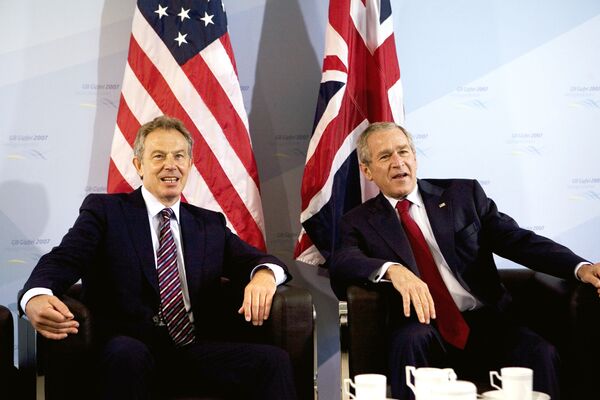
"Italy just joined the 'herd' like other countries which participated in [the invasion of Iraq]. Given Italy's industrial and economic interests in Iraq, it did not make any sense for Rome to get involved in this conflict," he emphasized.
"More than 3,000 military personnel were sent to [Iraq], and the annual military expenses for the mission amounted to half a billion euros," Piovesana remarked.
According to the scholar, since 2003 Italy has spent about 3 billion euros ($3.69 billion) on its military operations in Iraq. He specified that additionally, the Iraqi mission required the purchase of equipment, weapons, as well as training, in addition to medical expenditures.
In 2017 the Italian military contingent in Iraq amounted to 1500 servicemen, in 2018 this figure will decrease to 1000 troops.
"We have spent trillions of dollars to destroy [Iraq] which resulted in over a million casualties," Piovesana underscored. "As a result, the country is destroyed, divided, the war is being waged between [various] ethnic groups, Sunnis and Shiites. There is a political situation that has nothing to do with the initial intention to bring democracy [to the country]. Fifteen years later, a trillion dollars later, hundreds of thousands of deaths later there is a very sad situation whether the balance is uncomfortable and dangerous especially given the increasing number of Daesh (ISIS/ISIL)* supporters. I am talking about the chaos that we have created and monsters we have awakened."
The US launched its Operation Iraqi Freedom on March 20, 2003 under the false pretext of Saddam Hussein's developing weapons of mass destruction and colluding with al-Qaeda. The US-led operation resulted in the ouster of the Iraqi government and was followed by an eight year-long military occupation of Iraq.
There are conflicting reports on Iraq's total losses in the war — from 100,000 to 300,000 people, including civilians. However, according to the World Health Organization's (WHO) estimates, between 2003 and 2006 alone 150,000 to 223,000 Iraqis died in military clashes on the ground.
*Daesh (ISIS/ISIL) is a terrorist group banned in Russia.
The views and opinions expressed by Enrico Piovesana are those of the speaker and do not necessarily reflect those of Sputnik.

